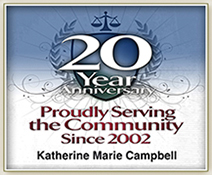Should You Keep Your Marital Home After Divorce?
 Whether to keep your marital home after your divorce is an important decision that requires considering all aspects of how this decision affects the emotional and financial well-being of both parents and your children.
Whether to keep your marital home after your divorce is an important decision that requires considering all aspects of how this decision affects the emotional and financial well-being of both parents and your children.
To Stay or Not To Stay – Emotional Considerations
Consider your family’s emotional ties to the home. Do you have family nearby who assist you with childcare? Do your children have neighbors as friends. Is their school nearby? Are their after-school activities located near the house?
What is your emotional connection to the home? Do you have nearby family or neighbors who provide emotional and social support for you or your spouse? Did you decorate the home’s interior? Remodel it? Do you have an elaborate flower or vegetable garden you nurtured?
To Stay or Not To Stay – Chaotic or House Full of Tension?
As you weigh your options, consider the tension in the home. Are you and your spouse calm at home or is the tension high? Are the kids aware of the conflict? Staying in a home filled with non-stop conflict might be worse for your children than the disruption of a move into two calm homes. Does the tension keep everyone in a constant state of fight or flight that further delays your entire family’s healing?
A discernment counselor can help provide guidance so both parents can better understand how your children might be experiencing this process.
To Stay or Not To Stay – Collaborative or Mediated Divorce?
Discernment counselors can be another member of your out-of-court divorce team. Choosing a collaborative divorce or mediation provides access to resources that you may not have in the court process.
In collaborative divorce, families work with trained team of experienced divorce professionals who routinely navigate this and other common issues. Licensed, experienced, and trained attorneys, mental health professionals, and financial neutrals all work together with both spouses to try and achieve their goals. Mediators are another cost-effective way to explore and consider creative and flexible options without the expense of a full team. These processes establish a safe space for open communication about creative and flexible solutions that are much more tailored to your family than a court-litigated divorce.
To Stay or Not To Stay – Financial Considerations
Financial considerations can often raise the most difficult aspects of the decision. Financial realities often have to do with numbers presented by banks or appraisals. They may limit your options. Can you afford to keep the house or not? If you sell this home, will you be able to buy another? What are current interest rates or housing prices? Is there a large inventory of homes for sale in your area? Can you remove your spouse’s name from the loan or will your spouse stay on the loan until you can refinance?
At Campbell Family Law, we are dedicated to helping clients divorce differently, focusing on peaceful and transparent resolutions through out-of-court processes like mediation and collaborative divorce. Contact us today to explore better choices for your divorce journey.
Note: This information is general in nature and should not be construed as legal/financial/tax/or mental health advice. You should work with your attorney and financial, mental health or tax professional to determine what will work best for your situation.


